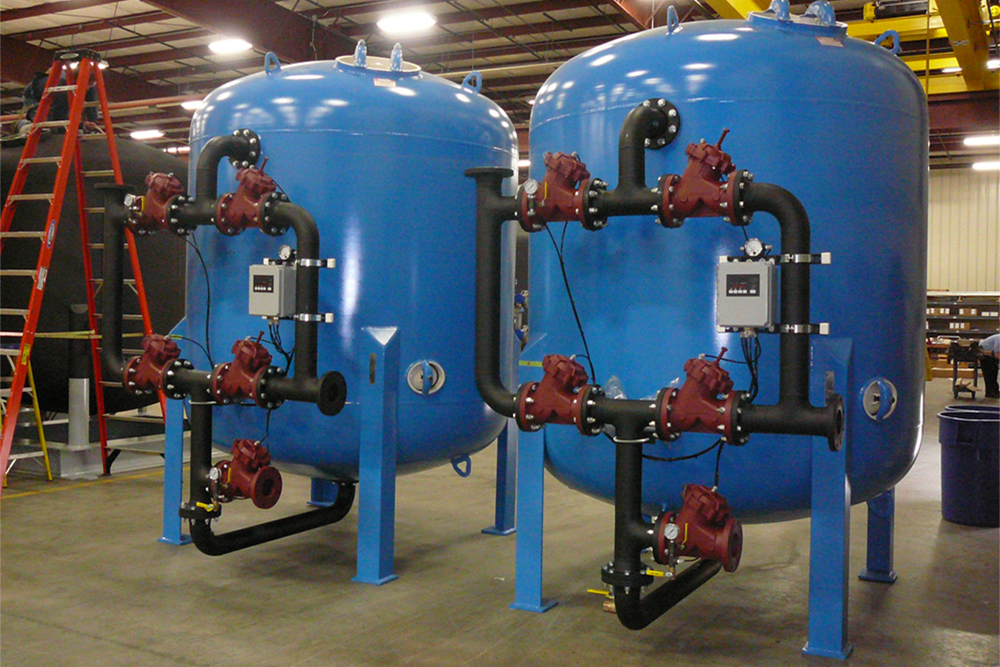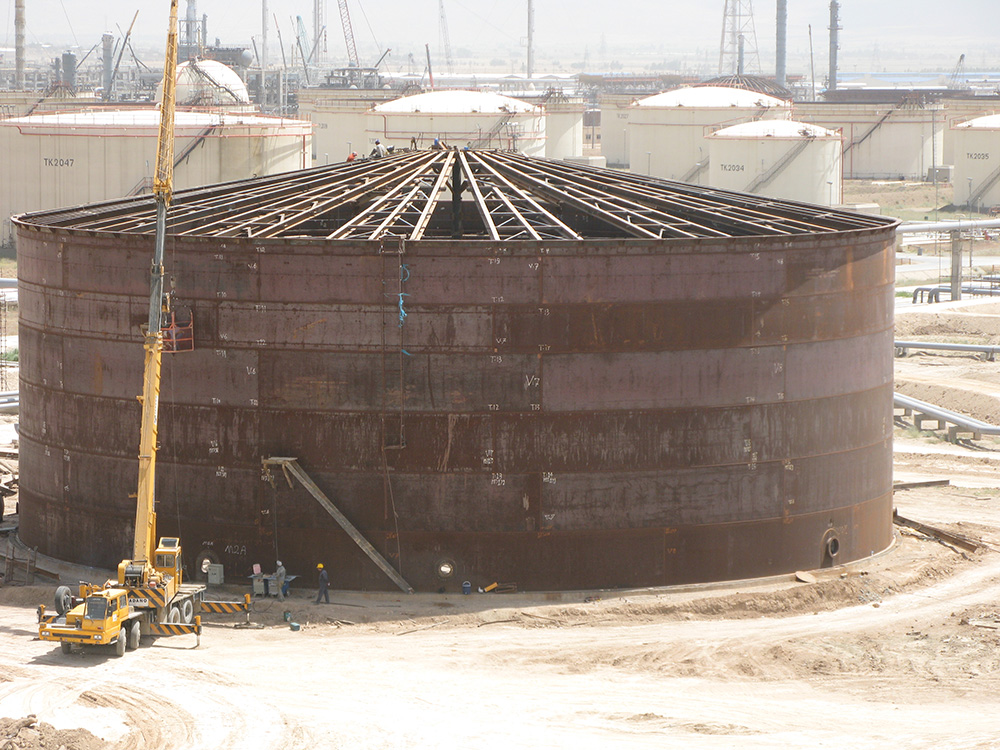In the oil refining industry, which constantly faces technical and operational challenges, refinery filters play a key role in maintaining process quality and preventing contamination. Petrosazeh Beinolmelal Aram Co. (Petrosazeh) focuses on strategies that extend filter lifespan and reduce operational costs. This article discusses practical approaches—from selecting the right materials to advanced maintenance—to optimize filters for longer performance.
Refinery filters, often used for separating impurities from fluids, can operate for years without replacement if properly managed. These filters not only maintain product quality but also help minimize production downtime. Petrosazeh provides durable filters that maximize customer productivity. Below are the main strategies to extend filter life.
Importance of Extending Filter Lifespan
Extending the lifespan of petroleum filters reduces replacement costs and supports sustainable refinery operations. Premature clogging or damage can lead to production halts and negatively affect product quality. Petrosazeh focuses on robust designs to ensure filters withstand harsh refinery conditions, ultimately increasing ROI and supporting environmental compliance.
Beyond economics, filter longevity is critical for personnel safety. Damaged filters may leak hazardous materials, increasing accident risks. In refineries handling corrosive fluids, preventive solutions can avoid such issues. Petrosazeh provides customized solutions to optimize filters for safer operation.
Environmentally, longer filter life reduces industrial waste and preserves natural resources, aligning with global sustainability goals, including carbon reduction.
Also read: The Impact of Timely Filter Replacement on Refinery Efficiency

Selecting the Right Materials
Material selection is one of the most effective ways to extend filter life. Materials such as stainless steel, polypropylene, or advanced ceramics resist corrosion and high pressure. Petrosazeh uses materials that meet international standards to maximize durability.
In acidic fluid environments, chemically resistant materials are essential to prevent premature wear. Materials must also withstand high temperatures, as refinery filters often operate under elevated heat. Coatings such as nano-coatings or reinforced composites can further enhance durability.
Material testing prior to installation allows prediction of longevity and prevents unexpected costs. This proactive approach significantly extends filter life.
Also read: How to choose the right refinery filter?
Regular Maintenance and Cleaning
Routine maintenance is a simple yet effective method to prolong filter lifespan. Periodic cleaning, such as backwashing or mild chemical treatment, reduces particle buildup and maintains fluid flow.
Visual inspections and pressure-drop monitoring can detect issues early. A significant pressure drop indicates clogging, prompting immediate action. In refineries, this prevents long downtimes.
Automated cleaning technologies, such as ultrasonic systems, can further extend lifespan by removing contaminants without damaging the filter, preserving efficiency.
Controlling the Quality of Inlet Fluid
The quality of the fluid entering the filter is critical. Fluids containing large particles or chemical impurities can accelerate clogging. Installing pre-filters or primary separation systems reduces the load on the main filter.
Monitoring pH and chemical composition is also important, as imbalanced fluids can degrade filters. In processes like hydrotreating, proper fluid control can double filter lifespan. Operator training to detect contamination signs is essential for preventive action and extending filter life.
Using Advanced Filtration Technologies
Advanced technologies, including smart filters with IoT sensors, can significantly increase filter lifespan. These filters monitor themselves online and send maintenance alerts. Nanofiltration and advanced membranes can better remove fine particles and reduce buildup, improving efficiency and minimizing replacement needs.
Integrating AI for failure prediction is another innovative approach. AI analyzes usage patterns to optimize maintenance schedules, further extending filter life.
Continuous Monitoring and Supervision
Continuous monitoring with pressure and flow gauges helps identify problems before they escalate. Analytical software can predict trends; for example, a gradual pressure drop signals a need for cleaning.
In refineries, continuous supervision prevents sudden stoppages and maintains operational stability.

Training Personnel and Following Operational Protocols
Operator training is often overlooked but crucial. Trained staff can prevent mistakes such as overloading the filter. Adhering to operational protocols, such as controlling flow rates, is also essential. Excessive flow can reduce filtration efficiency and wear the filter prematurely. Following proper protocols can increase lifespan by up to 30%.
Establishing a safety and maintenance culture encourages reporting issues early, helping maintain filter longevity and smooth operations.
Environmental Conditions and Filter Longevity
Environmental factors like temperature and humidity affect filter life. In hot or dry environments, filters may dry out and crack, so controlling ambient conditions is necessary. Protecting filters from dust and external contamination is also important. Installing protective enclosures or pre-filters reduces external contamination, especially in dry or humid regions.
Periodic assessment of environmental conditions allows equipment adjustments to maximize filter lifespan.
Role of Backup Filters
Using backup filters is another strategy to extend main filter life. They distribute load, reducing stress on the primary filter. Backup filters also allow operations to continue during maintenance, preventing downtime. Choosing backups with equal or superior quality ensures the system consistently performs at a high level.
Conclusion
Strategies to extend refinery filter lifespan—from material selection to continuous monitoring and personnel training—significantly impact refinery performance.
Key actions include:
- Using corrosion- and heat-resistant materials
- Implementing regular maintenance and cleaning
- Controlling inlet fluid quality
- Leveraging advanced technologies like smart filters and AI
Proper training and adherence to operational protocols prevent premature wear. Together, these measures reduce operational costs, enhance safety, and improve process sustainability, ensuring long-term refinery efficiency.







